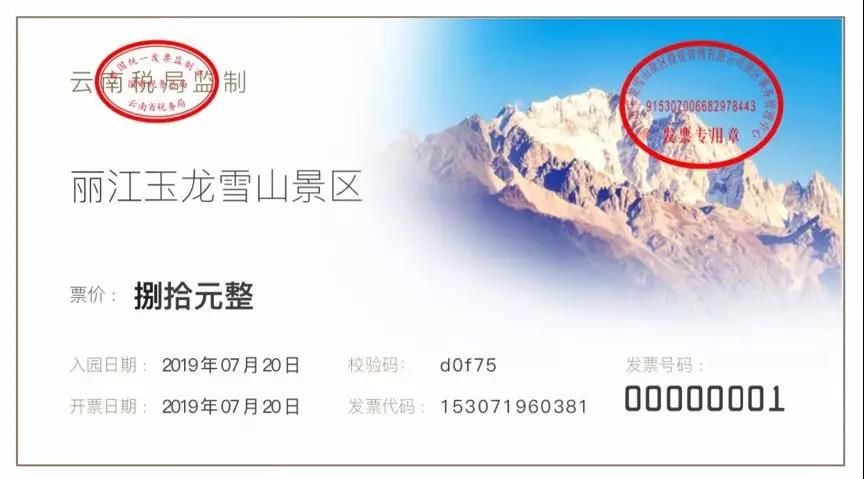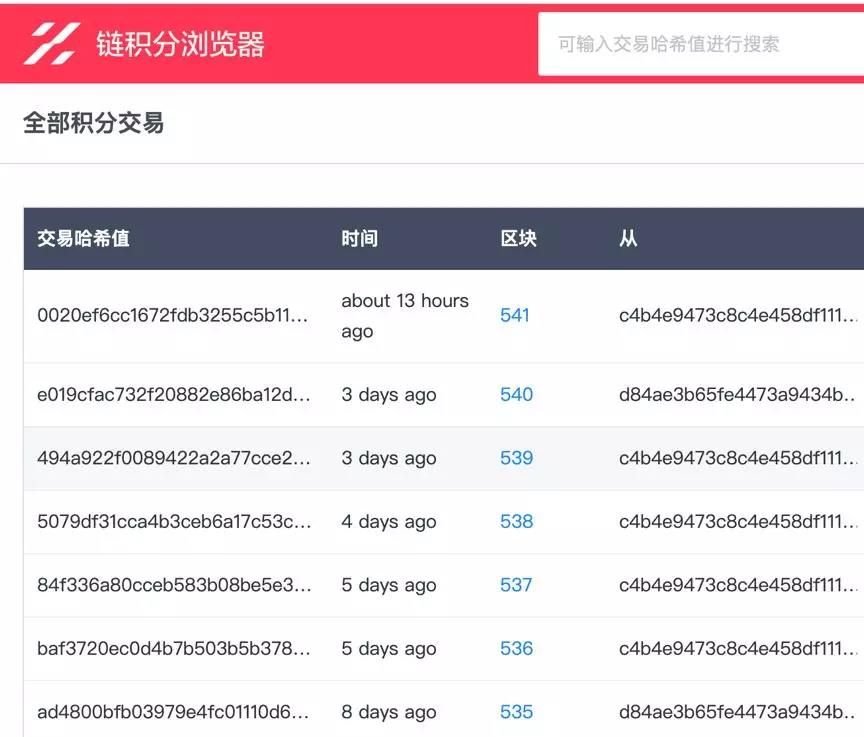Can the blockchain save the eleventh golden week that broke out every year?
With the passage of time, blockchain technology has also begun to empower the tourism industry.
From ticket sales, hotel reservations, travel insurance, to commission settlement, to solving traffic congestion problems, blockchain technology has been widely used in the tourism industry.
At present, the “blockchain+tourism” industry is still in the early stage, and this market is still promising.
01 tickets on the chain
In July this year, at the "Digital Yunnan" blockchain international forum, Yunnan Governor Chang Chengfa and Vice President Qiu Yuepeng jointly announced a news: tourists on the "Yunnan" platform on the electronic tickets, will be blockchain.
- Review of the week | Bitcoin fell 20%, but Bakkt did not want to back this pot
- ProgPoW enters the conspiracy cycle, Ethereum 2.0 upgrades or can end the farce
- Dialogue | Paying for the match: Who is better than the anonymous and stable coins?
At the forum, the two sides jointly opened the first blockchain electronic invoice on this platform. It is a ticket for Yulong Snow Mountain, a landmark attraction in Yunnan Province, with an amount of 80 yuan.

In terms of technical architecture, “tickets on the chain” still belongs to the application of blockchain electronic invoicing technology. At the same time as the purchase of electronic tickets, the system will automatically open an electronic invoice to facilitate the reimbursement of tourists.
This solves the problem that in the past, after the tourists purchased the electronic tickets, they still need to invoice online.
The combination of electronic tickets and electronic invoices facilitates travel for tourists. In the larger ticket market, blockchain technology also has a lot to offer.
Organizers and spectators of various performances such as concerts have always hated the scalpers and fake tickets. Therefore, some organizers often prohibit the resale of tickets, declare such tickets invalid, and even require the audience to purchase tickets.
But there are still many event organizers who don't want to "single-cut" the resale of tickets. In some countries, resale tickets are considered to be one of the rights of consumers, and the organizers have no right to interfere.
Therefore, in addition to the fight against the scalpers and the fare increase, some event organizers and government departments will not restrict the resale behavior of ordinary viewers.
In the United Kingdom, for example, in 2017, the United Kingdom introduced regulations prohibiting large numbers of scalpers or using automatic software to pay for tickets. But at the same time, the UK also allows ordinary consumers to resell tickets freely.
In addition, the UK law also stipulates that ticketing websites specializing in second-hand tickets must provide consumers with all the details of second-hand tickets, such as genuine ticket certificates and ticket order numbers.
In the ticketing industry, electronic tickets use dynamic two-dimensional code technology to ensure that the attendees are the ticket purchasers themselves, solving the problem of fraudulent paper tickets. However, dynamic QR codes also limit the resale behavior of tickets. The resale of electronic tickets is still difficult.
The blockchain technology spawned by digital currency is inherently suitable as a digital asset trading tool. Each ticket will also become a token on the chain.
On the blockchain-enabled second-hand ticketing website, buyers can use the public key to verify the authenticity of the seller's ticket. After the seller receives the ticket, the smart contract will automatically transfer the Token representing the ticket interest to the buyer.
In addition, event organizers, second-hand trading platforms and regulators can continue to monitor the flow of used tickets through the blockchain system to combat potential scalpers, thereby protecting consumer rights and providing better services.
In September 2018, Dutch comedian Jochem Myjer sold tickets for performances at the Royal Amsterdam Theatre. Among them, 50,000 tickets were sold through the blockchain ticketing platform GUTS.
In October of the same year, the blockchain ticketing company Upgraded was acquired by Ticketmaster, the US ticket distributor. This means that blockchain technology is also beginning to receive attention from traditional ticketing platforms.
02 hotel reservation
The hotel is an important part of the tourism industry chain. Currently, the industry is also beginning to introduce blockchain technology.
In March 2019, the National Network Information Office released the first batch of 197 domestic blockchain information service filing numbers. First Travel Home Inn (Guangzhou) Blockchain Technology Co., Ltd. is among them.
In fact, the first travel home is the first hotel group in China to explore the blockchain. In June 2018, it joined forces with BestApp to form the first blockchain research center in the hospitality industry.
According to industry and commerce information, First Travel Home Inn (Guangzhou) Blockchain Technology Co., Ltd. was established in July 2018. Home Inns Chain Co., Ltd. and BestApp accounted for 60% and 40% respectively.
After entering the blockchain, the first product launched by Home Brigade was called “chain integration”.
Today, the points system has become the standard for membership in major hotel groups. These points can be redeemed for free nights, breakfast, upgraded room types and more.
In the view of the first traveler, the points are too high, the information is opaque, and the lack of reasonable liquidity is the common problem of most integral products, and the blockchain is expected to solve these problems.
Chain integration products, through the blockchain to achieve the issuance, management and circulation of points, to ensure that points are issued in accordance with the rules of the points alliance program, can not be issued indefinitely, in order to eliminate internal corruption.
Thanks to the technical characteristics of the blockchain, companies can also monitor the distribution of current points in real time and supervise them.
According to official data, the chain points will not only serve the first traveler, but will also be exported as a solution in the future.
But at present, the chain score browser information shows that the number of points in the platform is 寥寥, and often there will be a transaction information in a few days. In addition, most of these transactions are only between several addresses. This means that the chain integration is still in the internal testing phase.

In addition to blockchain + points, in the hotel accommodation industry, the blockchain still has more use.
In the OTA (Online Travel) market, practitioners have used blockchain technology to reshape the hotel booking industry.
At that time, it was predicted that the hotel reservation + blockchain would become the next vent.
In the hotel booking industry, the OTA platform's excessive commissions and long payback cycles have always caused hotel practitioners a headache. On the other hand, the OTA platform has high operating costs and must rely on high commissions.
According to public information, the current hotel commission on the OTA platform is as high as 20%-30%, and the billing cycle is around 60 days.
When the blockchain era came, there was a decentralized booking solution in the OTA space.
Blockchain technology is also expected to solve the trust problem in hotel reservations.
However, there is still no better solution to the problems of traffic, passengers and so on. The blockchained OTA platform still has a long way to go.
03 Smart Transportation
In the tourism industry, it is not just hotel owners who are troubled by high commissions and long return cycles. Travel agencies, scenic spots and other practitioners are also suffering.
The lengthy industrial chain has always been a major problem in the tourism industry.
Taking group tour as an example, tourists place orders on the OTA platform, and travel agencies have to go through a long period of time to receive settlement fees. For hotels, transportation and attractions practitioners downstream of the industrial chain, the payback period is longer.
In this industry context, some traditional travel platforms have also begun to introduce blockchain technology to reduce commission costs and collection cycles.
Nasdaq-listed company and B2B travel service platform Travelport announced in August that it will use the Hyperledger blockchain project to pay commissions for travel agencies and hotels.
In terms of technical architecture, Travelport has established a chain of alliances with cooperative hotels and travel agencies. With the open, transparent and decentralized attributes of the blockchain, Travelport and its partners can complete reconciliation work more easily, and time and labor costs are greatly reduced.
From the hotel reservations at the C-end to the industrial collaboration at the B-end, the underlying buildings of the tourism industry are being reshaped by the blockchain. In the field of travel, blockchain technology also has more use.
In this area, insurance is perhaps the first place where blockchain technology has been applied.
Take aviation accident insurance as an example. In the insurance industry, aviation accident insurance is of a special nature – as long as there is no accident in the aircraft, there will be no claims. The crash of a passenger airliner is a very low probability event, even if customers buy fake insurance, it is difficult to find. Therefore, aviation insurance has always been the “hardest hit” for insurance fraud.
The blockchain navigation insurance can track the whole process of the card from the source to the customer through the traceability of the blockchain. Participants can not only verify the authenticity of the card, ensure the authenticity and uniqueness of the card, but also simplify the subsequent claims process.
In 2016, Sunshine Insurance tested the water blockchain and cooperated with the Bubi blockchain to launch the “blockchain+aviation accident insurance card” – “Fei Changhui”.
Take the flight delay insurance as an example. Thanks to the intelligent contract function of the blockchain, the claims section of flight delay insurance has been greatly simplified. At present, a number of insurance companies, including AXA, have introduced blockchain technology in such products.
Traffic congestion management is also an area where blockchain is highly anticipated.
Recently, the "Outline for the Construction of a Powerful Country" promulgated by the state has proposed to vigorously develop smart transportation and promote the deep integration of new technologies such as big data, Internet, artificial intelligence, blockchain and supercomputing with the transportation industry.
This means that the use of high-tech blocks such as blockchain to create smart traffic has become a major trend.
As early as December 2017, the China Communications and Communications Information Center under the Ministry of Transport, the China Information and Communication Research Institute of the Ministry of Industry and Information Technology, and the China Internet Transportation Industry Innovation Alliance had jointly launched a transportation chain network with enterprises.
It aims to combine the Internet, Internet of Things and other technologies to connect the government, enterprises and other industry entities in the industrial chain, and to combine vehicles, ships and other transportation equipment and roads, bridges, stations and other infrastructure to build a modern transportation network.
On the basis of ensuring the transparency of data circulation, the blockchain can protect the rights and interests of data assets, improve the efficiency of intelligent traffic operations, and reduce traffic congestion.
In the entire transportation industry, the most eye-catching application of the blockchain is the combination with the Internet of Vehicles technology.
In the future vision of the Internet of Vehicles, every vehicle will be connected to the Internet. The blockchain is expected to provide credit blessings for the vehicle's core information.
For example, complete lifeline information for vehicles, such as auto repair auto parts, vehicle management, car manufacturers, car rental, insurance, etc., can be stored on the chain.
In addition, the vehicle's violation information and fault information can also be stored in the blockchain for review by the traffic control department or to provide auxiliary proof for used car transactions.

From ticketing to travel and accommodation, blockchain technology is bringing more convenience to tourists, and the entire tourism industry benefits from it.
Although the exploration of the blockchain in the tourism industry is still in its early stages, in the future, there may be more surprises that will arise between the collisions between the two.
Text: Ratchet Pizza
Source: A blockchain (WeChat public number: yibenqkl)
This article is an original manuscript
Unauthorized, may not be reproduced
Editor's Note: This article does not change the original intention of the author.
We will continue to update Blocking; if you have any questions or suggestions, please contact us!
Was this article helpful?
93 out of 132 found this helpful
Related articles
- Regulatory barriers, executives acknowledge that Libra may postpone the release
- [Cold knowledge] Mine construction cost calculation method!
- RSK parent company announces acquisition of Spanish social giant Taringa to integrate its tokens into social applications
- Ruibo finally started on DeFi! Acquisition of Logos to create a Repo-based (XRP) DeFi ecosystem
- Google has been "quantitative hegemony" being screened, and the cryptocurrency community already has a solution?
- Lightning Network Danger Vulnerability Details are disclosed, new versions of clients are not affected
- The strongest and most brain-burning anti-eavesdropping cryptography in history: Quantum key distribution





